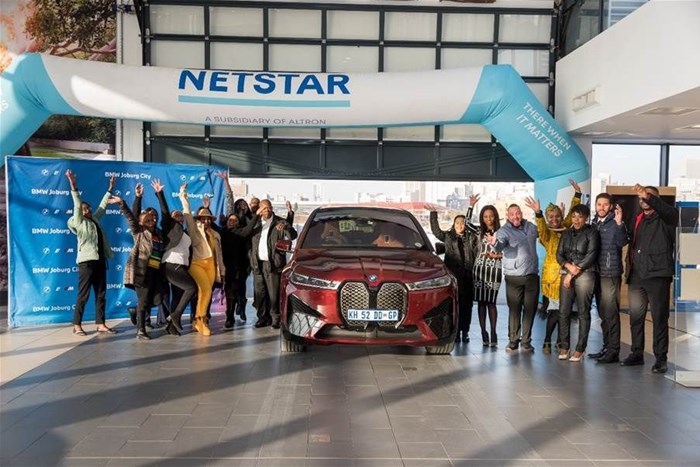A new record has been set for South African cross-country travel by an electric vehicle. Motoring journalists Justus Visagie and Ernest Page have journeyed between Cape Town and Johannesburg using a BMW iX in 20 hours and 17 minutes.

Image supplied
At 7pm on 28 June 2022, the team set out from BMW Cape Town City on Herzog Boulevard and arrived at BMW Johannesburg City in Braamfontein.
The team achieved a total driving time of 14 hours and 56 minutes for the journey, which they completed in seven legs, driving a BMW iX battery-electric vehicle. The vehicle maintained an average speed of 94km/h, and vehicle-tracking organisation Netstar confirmed that 1,404km were driven.
The team stopped to charge on six occasions, at charging stations in Worcester, Laingsburg, Beaufort West, Richmond, Colesberg and Bloemfontein. In total, the vehicle spent five hours and thirty-three minutes replenishing its battery charge at the charging stations.
Viren Sookhun 28 Jun 2022 “This journey has provided interesting insights for long-distance, electric-vehicle travel in South Africa,” says Netstar executive: Sales Nicky Sheridan.
“Justus, Ernest and the team have shown what current electric vehicles can achieve – even on the ‘up journey’ from the coast to 1,700m altitude in Johannesburg in the middle of winter.
Sheridan says as EV technology and road infrastructure for supporting the vehicles evolve, so South African car buyers will start to consider their electric vehicle options when it came to buying their next new car.
“The journey from Cape Town to Joburg is the benchmark long road trip that any South African is likely to make,” says Sheridan. “
The data confirms that it is now possible to complete that journey in around 20 hours, using battery-electric technology, even allowing for stops, recharging and driver changes.”










































